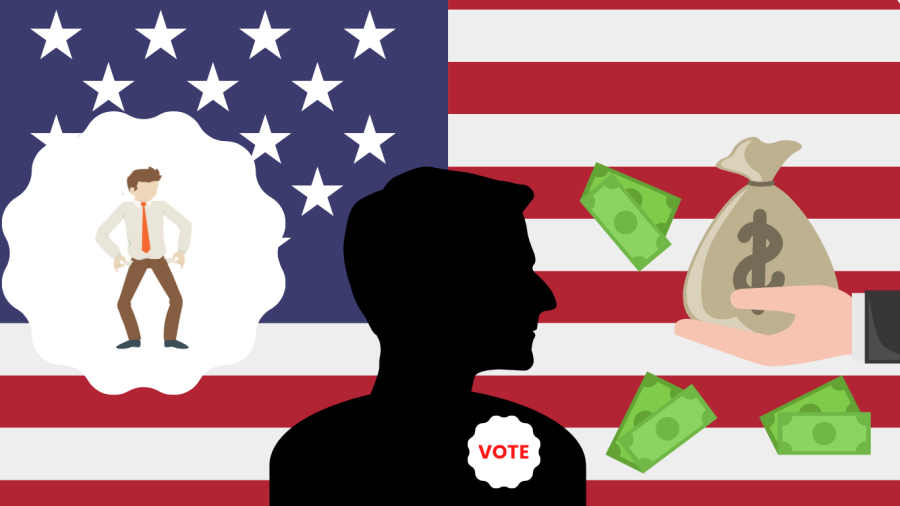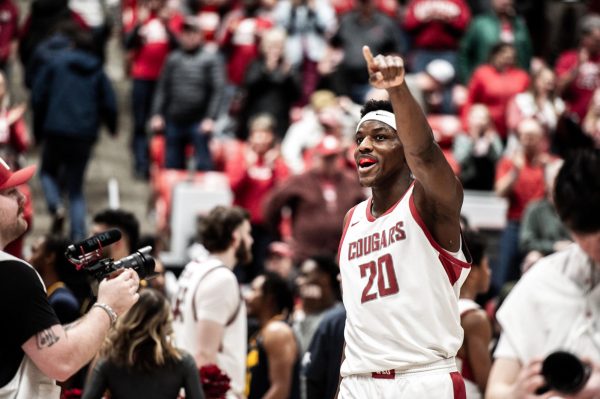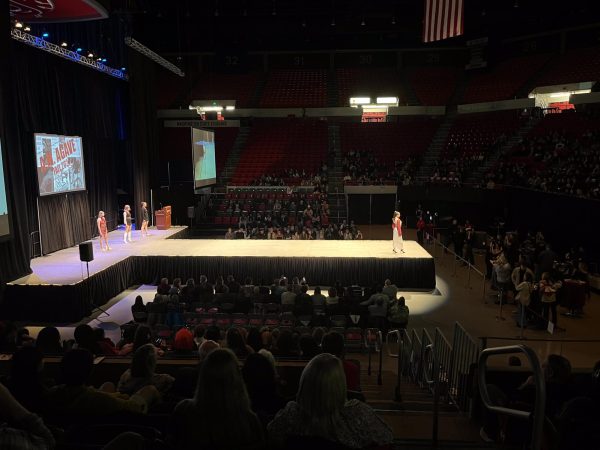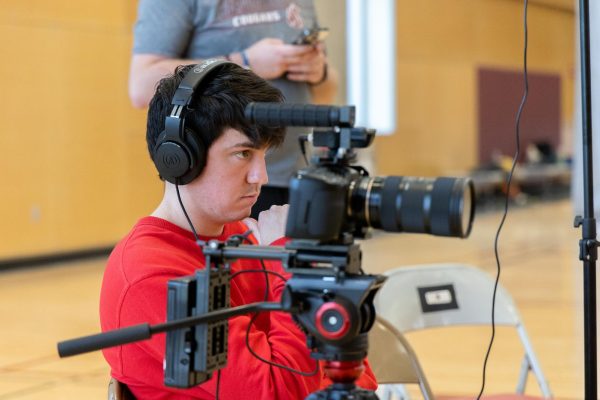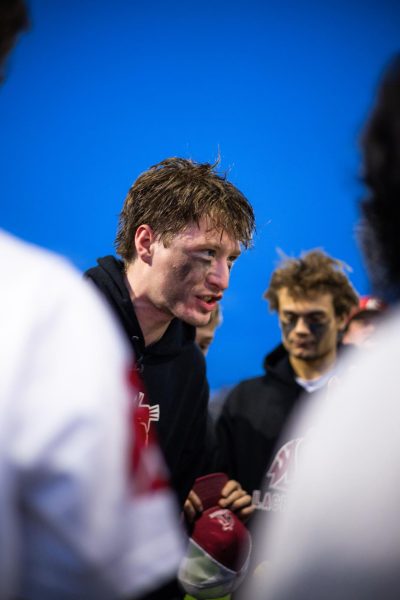OPINION: Time to restore balance in campaign funding
Publicly funded campaigns first of many steps to electoral reform
A privately funded system puts money ahead of public trust.
January 20, 2022
The cost of political campaigns, especially on the national level, is staggering.
With the most recent presidential election, both major candidates threw around huge budgets.
Both President Joe Biden and President Donald Trump raised and spent well over $1 billion each on the elections according to their Federal Election Commission reports. This is not taking into account Super-PAC contributions to the elections, often running parallel to the candidate’s campaign in support.
Unsurprisingly, the majority of contributions to each campaign came from larger interest groups and donations. While the 2020 election saw significant growth for smaller donations, it still did not breach the hold that larger sums have on our election cycle.
This only signals that it is time to place the power of donations back into the hands of the people and take away the stranglehold that larger entities, interest groups and corporations have on the election process. Electoral reform is needed across the board, but one of the first places that we can start is in the financing of politicians’ campaigns.
Bryan Finley-James, sophomore animal science major, said he has become concerned about the unbalanced voice among American elections.
“They like to publicize the small donors,” Finley-James said. “A majority of their money comes from larger donors. There are loopholes to sidestep the regulations in place.”
Moving to publicly funded campaigns will set candidates on a more equal playing field, expedite a process of trust in political funding and start the long journey to making the American political system more open to third parties.
That was a lot of big promises and vague gestures, so I will endeavor to break the proposal down into little parts.
The Federal Election Commission polices the current electoral funding system. Their job is to make sure candidates are transparent with their donations, as well as maintain the rules and limits on contributions that are legally in place.
This commission is certainly a step in the right direction with limits on how much money anonymous sources may contribute. Yet, it is putting a band-aid over thousands of paper cuts caused by the money that flows around it. One of the largest legal loopholes to the contributions limits is Super-PACs.
Officially dubbed “independent expenditure-only committees,” there are just under 2,000 of these organizations on file with the FEC.
Super-PACs do not have contribution limits and can raise theoretically unlimited amounts of money and have contributed millions to candidates over the years. The only real regulation for these committees is they cannot actively spend money in concert or cooperation with a candidate’s campaign or political party.
This wording does allow them to buy ads, print advertisements and influence other forms of media at the unofficial behest of their candidate of choice.
“It discomforts me, to say the least, that large entities have the power to influence things that should be decided by the people,” Finley-James said. “People’s voices are almost being silenced by that.”
If that sounds like it circumnavigates the heart of the contribution limit rule set in place by the FEC, then you are right. Super-PACs have come under fire recently for this reason, as voters from both sides lose their trust in the political process as the disclosure of funding is more of a grey area.
Ian Wells, junior mechanical engineering major, said he tries his best to research political candidates before voting for them but has trouble finding information on everyone who has donated to a political campaign.
“I do my best to be informed. I vote in the national, state and local elections,” Wells said. “I’d like to get an idea of the platforms, but the loopholes make it hard to find the funders if they are on the website at all.”
Candidates already have the option to have their campaigns publicly funded rather than through private donations, but making that the rule rather than an option will go a long way in rebalancing political funding.
Currently, most individual donations to a political campaign are of little consequence because of the contribution limit. Since this is something that larger interest groups tend to circumnavigate, it reduces the actual impact that the average citizen has on the election.
The FEC allows candidates nearly $103.7 million dollars (adjusted for inflation and cost of living each year) if they agree to limit their spending to the grant and not receive private contributions for their campaign. There are even rules regarding giving the funding to third-party candidates, though the threshold is set incredibly high.
The amount of money should be increased to accommodate for the extensive spending that political campaigns take, but simultaneously scaled back from the billion-dollar expenditures we saw from the last presidential campaign. In addition to this, Super-PACs need to be more heavily regulated, if not outright abolished.
Voters knowing exactly where the money is coming from and how it is being spent takes the guesswork out of campaign donations. No longer should elections be heavily influenced by how much money a candidate can raise and spend.
Another important step towards this reform is dropping the threshold for third parties to allow them greater access to funding and national exposure. Currently, in order to qualify for funding, a third party needs to receive 5% of the popular vote.
While this does seem reasonable, no third party has breached 4% in recent years. This is not reflective of the actual popularity of the party, as the current system is built to maintain the two-party system rather than encourage more.
There are many steps to encourage third parties and open up our political system, but changing funding is an important step in the right direction. The threshold should be dropped to 3% or registered to a certain amount of signatures for a new party handled by the FEC.
“Having a set amount of public funding really levels the playing field,” Wells said. “It can also introduce the possibility of more third party candidates having a fighting chance.”
It is understandable to be hesitant about this proposal. The move towards public funding is not without its pitfalls, and voters may be hesitant to give public funding to candidates who do not represent their views.
These and other concerns are important to consider, especially as moving to an entirely public-funded system would be such a shakeup, but the benefits of this system are important for the maintenance of our democracy.
As trust on both sides of the political aisle is becoming increasingly strained, electoral reform is necessary in order to restore that trust. Breaking the mold of donations and moving to a public system is the starting point to making our system more accessible to everyone rather than those who have the money to throw around.
“The point of our democracy, our republic, is to have the voice of the people actually expressed,” Wells said. “Giving more power to the people is a great idea.”
I could not agree more.


